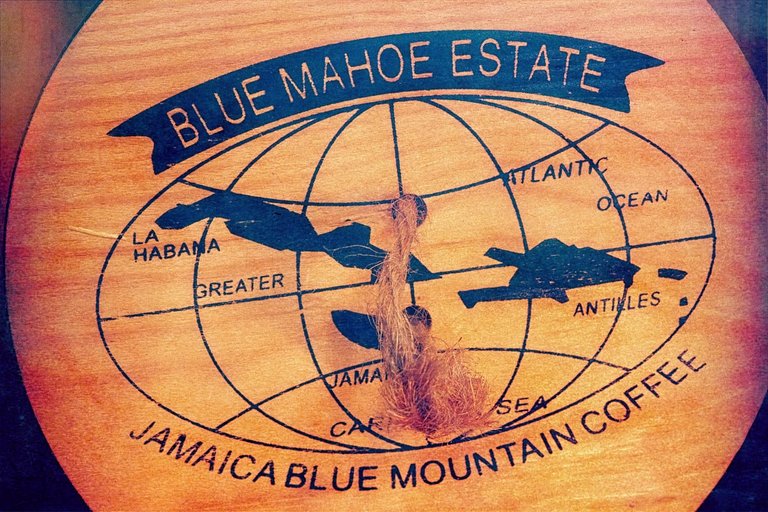
Hello Hive friends. Long time no hear from my behalf. I have been quite busy lately, but hey, here I am. Today I will present you one special ingredient - Jamaica Blue Mountain Coffee.
History
Coffee made a huge jump from Arabian Peninsula to Amsterdam where it got quite popular. In fact, one plant was present to King Louis XIV of France. He got thrilled over coffee’s energetic lift, therefore this plant got special handling. Once France started colonizing the world, King Louis made sure to send coffee tree seedlings to Martinique. With good growing conditions, Martinique proved to be quite an exporter. As it turns out coffee plants that are growing in Central and South America share a link to the ones growing in Martinique. The same goes for Jamaican Blue Mountain Coffee, which was introduced to Jamaica in 1728. That was the year when the Governor of Martinique gifted the Arabica coffee plant to the Governor of Jamaica.
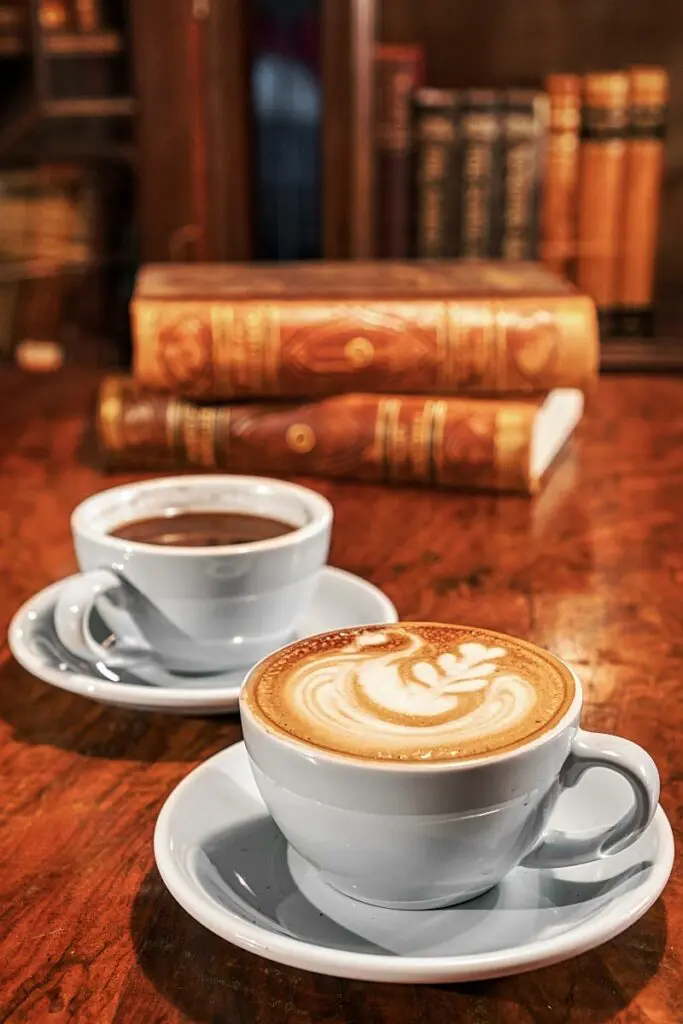
Coffee anyone?
Location
Arabica plants need nutritional soil with good drainage and constant mist in order to thrive. Luckily, they grow well at high altitudes and flourish with frequent rain. That is why people focused on the Blue Mountain area. Misty clime at its prime! With thriving plants and repeated ample harvest, the coffee from the region becomes highly searched for. Of course, the healthy plant gives in abundance and tastes the best. Geological location is “just” the unique tasting cherry on top.
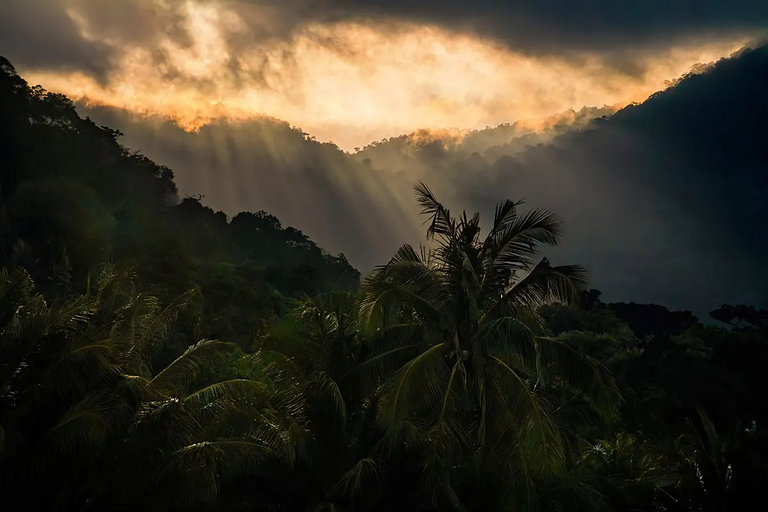
Mountains are the key, man!
Certification
Needless to say, the real Jamaican Blue Mountain Coffee is certified by the Jamaica Commodities Regulatory Authority. Only 6000 family farms are in the area for the certificate. To meet the conditions, coffee must come from the Blue Mountains within parishes of St. Andrew, St. Mary, St. Thomas, or Portland parishes, where it grows from 910 meters (3,000 ft) to 1,700 meters (5,500 ft). Space above that is reserved for nature. By the way, these are the highest mountains in the Caribbean that rise to 2,256 meters (7,402 ft). Under and around the “golden coffee belt” there is more coffee but is a different kind of coffee.
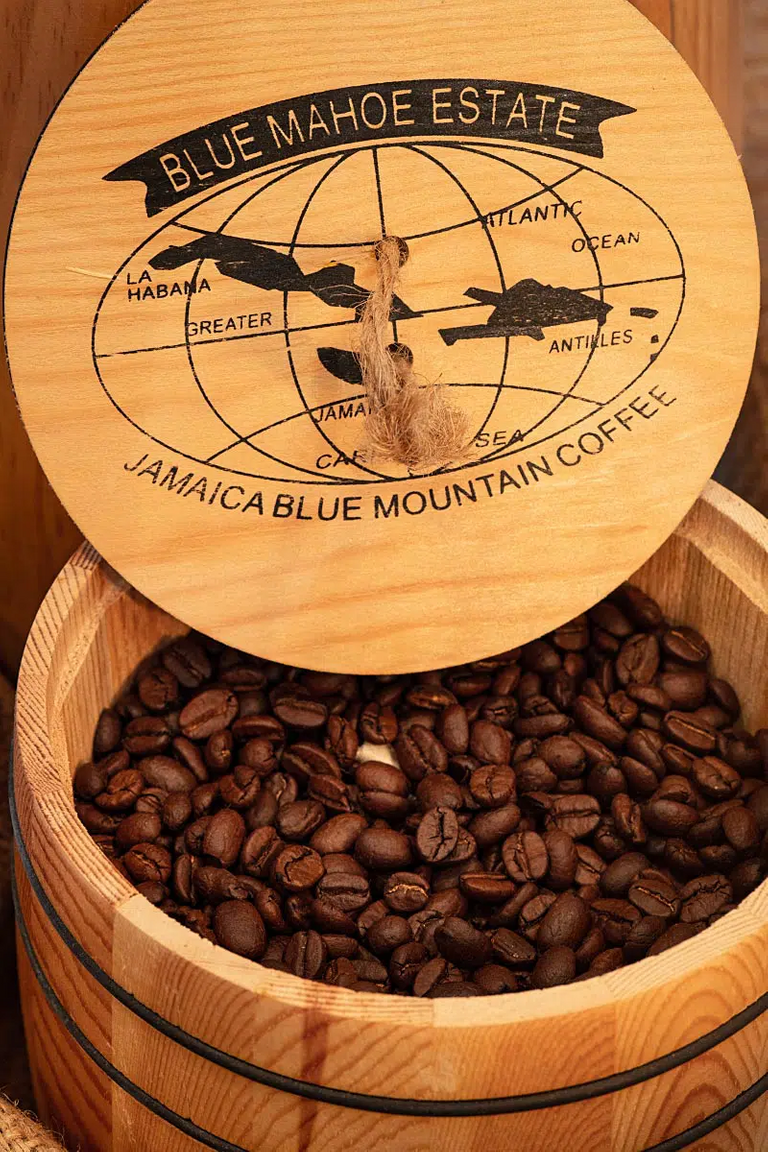
Is it important to look after these certificates? Check the next chapter and find out!
Challenges and Problems
The biggest problem is counterfeiting. Jamaican Blue Mountain Coffee is one of the most counterfeited coffees in the world. It is estimated that 80% of consumers end up purchasing fake Blue Mountain coffee due to the prevalence of mislabeled products. There are also loopholes. Some are selling premium blends at a premium price, but sadly, only 1% of real Jamaican Blue Mountain beans are in the bag.
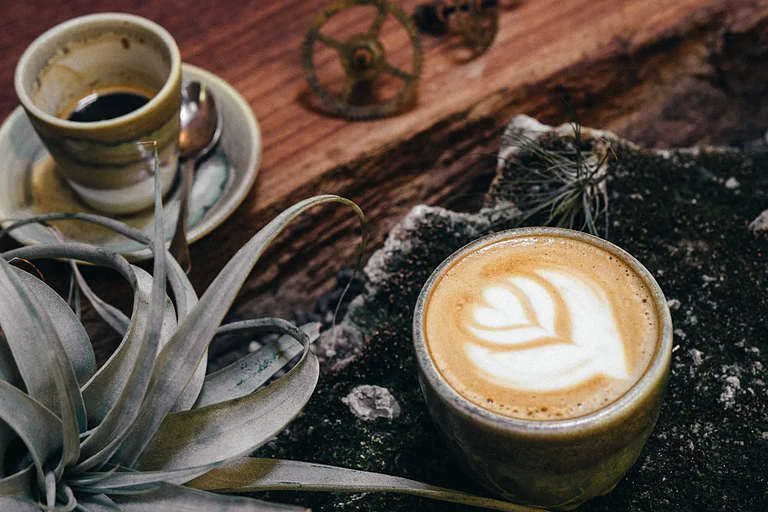
Am I real or fake?
Another problem is familiar with all coffee growers – climate changes. Weather anomalies are getting stranger, heavy rains, droughts, and hurricanes leave plants shocked. This creates the perfect window of opportunity to infect coffee plants with all kinds of diseases and pests.
On top of that, there is exploitation. A small area on a little island produces about 0,1% of the world’s coffee. All of the coffee is produced by small family farms that don’t live in luxury. Sadly, those who grow one of the world’s most expensive coffee are struggling to survive. As always, those who get the job done are left with the least profit but carry the highest risk.
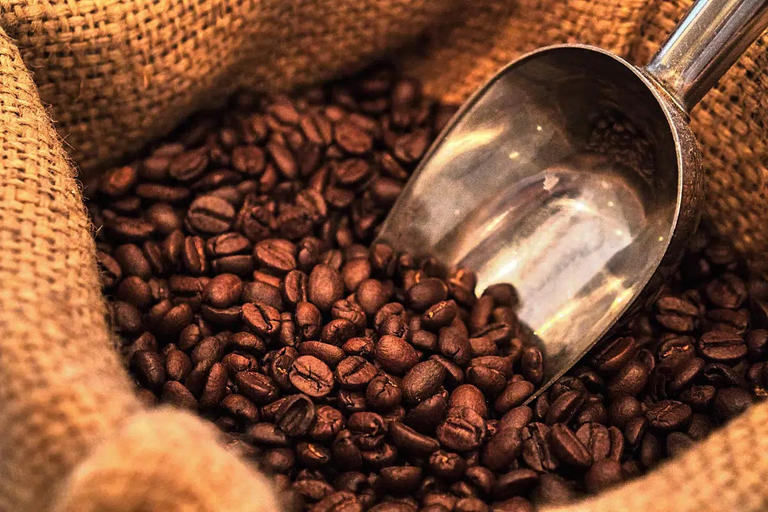
Will coffee extinct?
Taste of Jamaican Blue Mountain Coffee
Jamaica Blue Mountain coffee is renowned for its smoothness that delivers a clean taste. Its aroma reveals divine floral notes that end in a sweet herbal foundation but are strongly pointing in the nutty direction. On the tongue, you can’t miss the smooth mouthfeel. There is a lot going on with pleasing bitterness meeting vibrant acidity jumping from the spiciness, nuts, cocoa… Without a doubt, it is harmonious. Maybe this addictive balance happens due to the smaller caffeine dosage in the beans. To be specific Jamaican Blue Mountain coffee has up to two-thirds less caffeine than typical coffee.
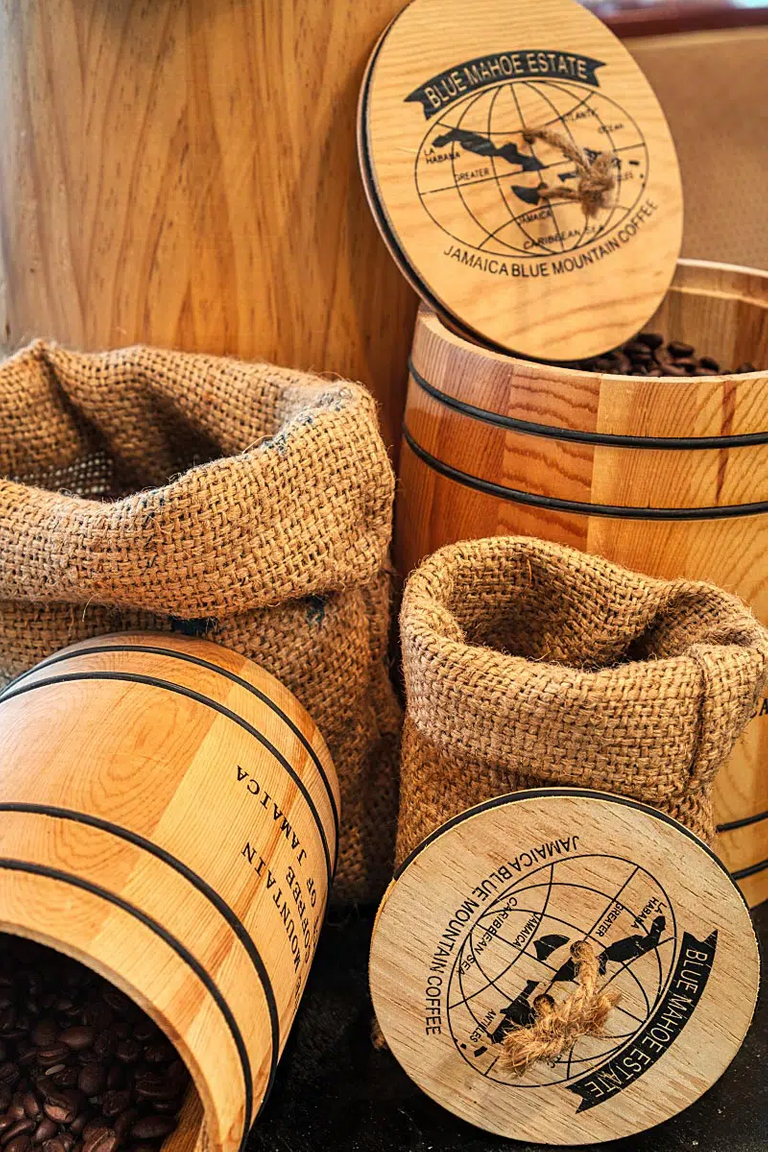
Is it any good? Yes, it is! We loved it.
Japan’s Jamaican Blue Mountain Coffee Craze
We all know that Japanese pallet is very particular so no wonder they fell in love with the Jamaican Blue Mountain Coffee. So much so, that since 2019 they are celebrating Jamaican Blue Mountain Coffee every January 9. Back in 1967, Japan imported 60% of the entire crop marking the beginning of prosperity after world war 2nd. Now Japan imports up to 80% of Jamaican Blue Mountain Coffee which keeps loyal coffee enthusiasts “ureshii” happy.
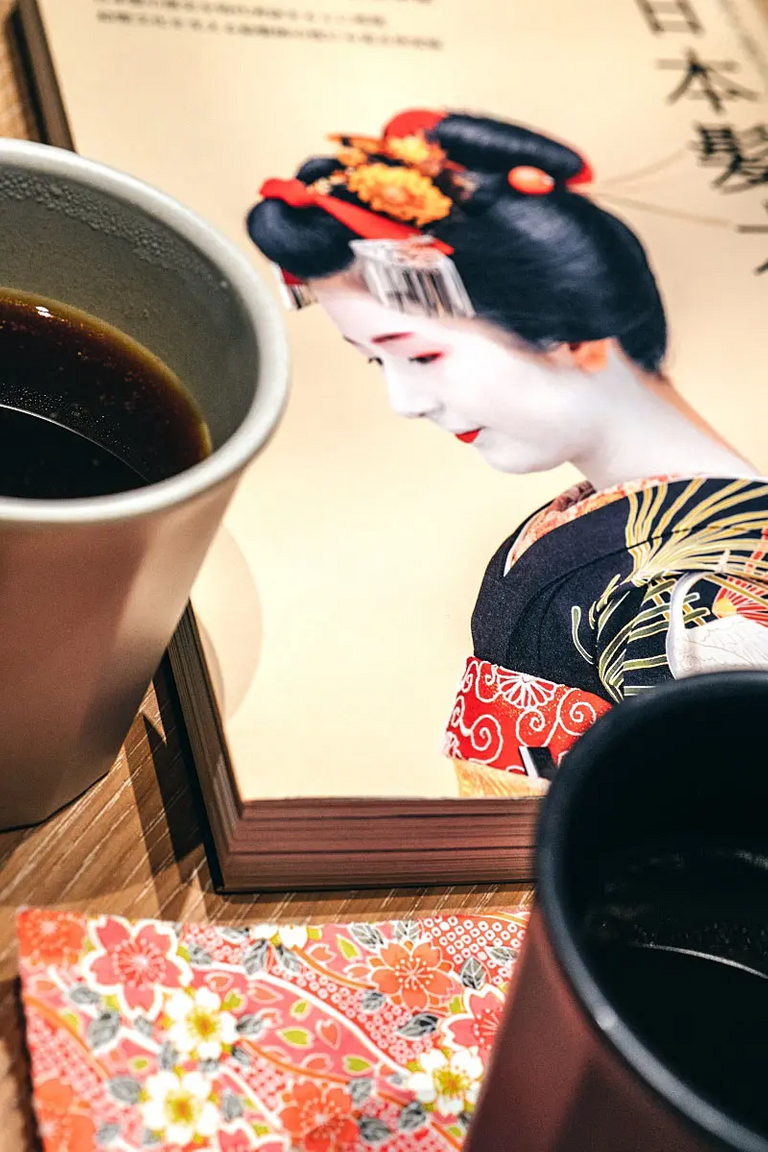
Jamaican coffee makes us ureshii
Price
One pound of certified 100% pure roasted beans of Jamaican Blue Mountain Coffee costs 65.00 USD. You can order it online via small companies or Amazon. The biggest factor that is driving the price up is the middlemen, also known as processing and logistic companies. Then there are dangers of growing coffee on steep slopes that demand manual labor. Also, the weather is playing a huge role in price, because it defies harvest.
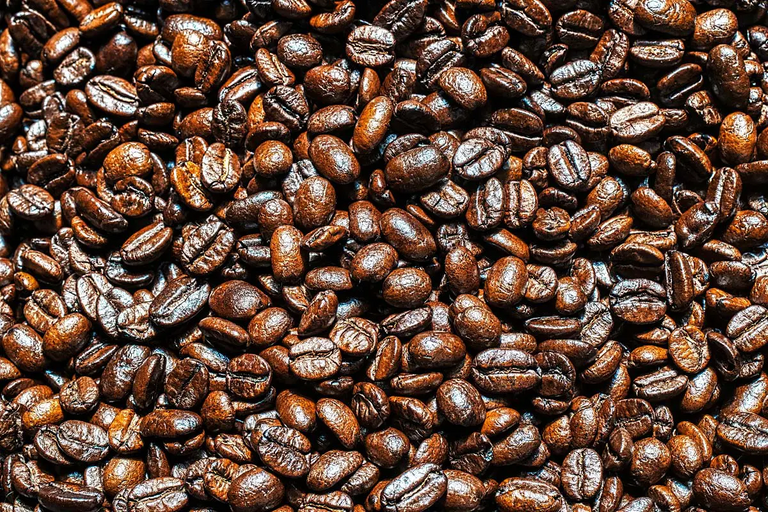
Black gold man.
Final Thought
After water and tea, comes a coffee! Snitches better cherish the riches of the planet. Mother aint giving and giving without receiving. If gratitude fails violence prevails. Bitches better be grateful, enjoy Mother Earth’s riches, and don’t be leaches.
And here is the end of our new coffee post. Jamaican Blue Mountain Coffee is a gift from the Pacha Mama and we should treat it right. Is it too expensive? No, all the other coffee is too cheap, that’s the problem. Respect other’s work and enjoy it, I guess. However, everyone should try Jamaican Blue Mountain at least once in their lifetime. I just hope you will get the real one, and not a fake one.